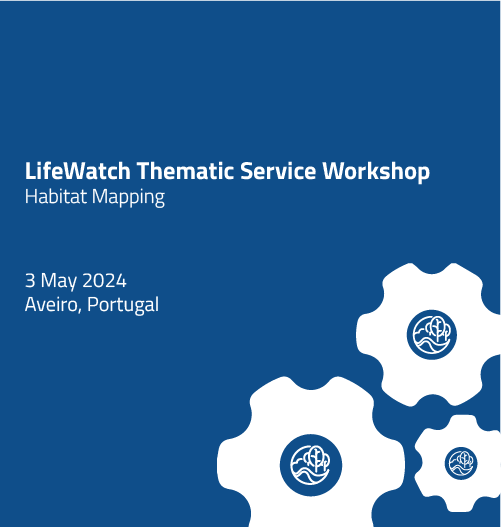Habitat Mapping: From Science and Policy Needs to Solutions

The workshop “Habitat Mapping: From Science and Policy Needs to Solutions” is organised by LifeWatch Portugal in collaboration with all LifeWatch ERIC Common Facilities and National Distributed Centers. This gathering will explore the nexus between science, policy, and innovative solutions in habitat mapping. The agenda includes plenary sessions introducing LifeWatch TCS, showcasing indicators, and a World Café workshop on services, community needs, and integration strategies. The day concludes with discussions on future TCS-community interactions.
Speaker presentations will be published on this page soon.
Registration
Agenda
Times refer to the Portuguese time zone (UTC).
Plenary
- 14:00 | Welcome
- 14:05 | Introduction LifeWatch Thematic Core Service (TCS) by Alberto Basset (LifeWatch ERIC Service Centre)
- 14:25 | Habitat Mapping by LifeWatch Belgium by Julien Radoux (remote)
- 14:45 | Introduction LifeWatch Thematic Core Service (TCS) by Tiago Múrias (LifeWatch Portugal) + Q&A
Workshop – World Café
Moderators: Ana Lillebø, Bruna Oliveira, Daniel Crespo
15:00 – 16:30
- Topic 1 – | What is already in place in terms of services (within and outside of LifeWatch ERIC)?
- Topic 2 – | What are the community’s needs and requirements, and how can we identify these?
- Topic 3 – | How can we further integrate this into the infrastructure?
Plenary
- 16:30 – 17:00 | How to organise this TCS-community interaction for the future? Moderated by Ana Lillebø of LifeWatch Portugal / University of Aveiro
- 17:00 – 17:30 | Wrap-up by Alberto Basset /Ana Lillebø
- 17:30 | End of the session
Presentations
Coming soon!
Presentations
70%
